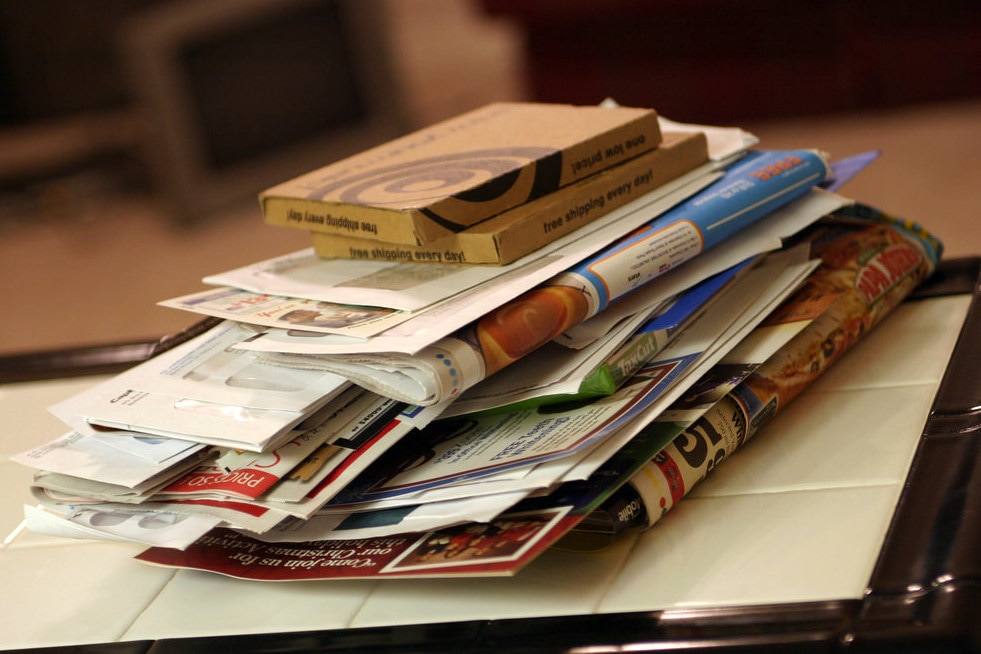This sounds pretty straightforward, but not exactly how things work at your home, or does it? Think of this as a general guideline because things are not usually as clear-cut as this, of course. If some of the flyers or newsletters might look interesting and warrant closer examination, take them to the reading table. If you know you won’t have time to read the newspaper before tomorrow … maybe don’t even put it onto the reading table at all. There is flexibility of sorts, however, there are several rules you should always follow:
Does this sound too strict? Maybe. On the other hand, following those rules will make sure you’ll never be late with payments, no superfluous paperwork is lying around waiting for action, and you’ll never have to wonder if you are up to date with your paperwork again. Plus: each piece of paper you have removed from your household will never come back to haunt you in the shape of paper clutter! Going one step further and looking at the home office, the idea of throwing out papers may seem a little over the top, but maybe you’ll change your mind after this paragraph. Just imagine how much of our paperwork is actually online and in the cloud anyway: banking happens online, and even if you receive a printed bank statement, once you have checked it there is no need to keep it, really, as all that information is also available online for as long as you need to keep it. Similarly for utilities bills: once you have paid them, you only really need to keep the last one for reference as it contains all the information you need (and usually things happen online as well). If you give it some more thought, you’ll probably find that the majority of what we do in paper format is duplicated electronically somewhere accessible. Exercise
When you next receive a monthly (or otherwise regular bill), go about paying it as you would normally. When it comes to filing that bill, locate the folder (in the hopes that you have one) with the previous bills and find out if the old ones actually contain information that you cannot see on the new one. Most likely you’ll have to agree that there is no need to keep the old ones.
If you follows these simple steps for each supplier, you’ll end up not only with a lot less paperwork to keep, but also you’ll find your stuff easier if you are looking for it. Doing this as a matter of regular maintenance also avoids those times when you have to spend a lot of time to sort through all your paperwork because it has gotten out of hand… Home office specifics When it comes to business papers and correspondence, notes, administrative paperwork, tax papers, etc., things are a little different. Of course we want to keep a paper trace of what is going on. However, even in the home office of a small business, there is room for manoeuvre in terms of reducing the paper piles. Here are a couple of examples:
Those are just a couple of suggestions on how to deal with the growing paper mountains in our homes and home offices. Of course, not all of those will apply to your particular situation, I’m sure. These examples might have made you wonder if you could actually find some way to make them work for yourself. I can only hope that they have made you take a good look at how you deal with your own paperwork, and how those strategies could be modified to get it done more smoothly. If you have enjoyed reading this, you may find these other articles interesting: Comments are closed.
|
Ask the ClutterMeisterIdeas to help clear away the mess in your homes and in your minds.
Feel free to share any of my posts, but please put in a backlink to the original blog post. Thank you. The author
Hi, my name is Tilo Flache. My mission: help clients declutter mind and space.
This blog contains pointers for your journey towards a happier living experience. Archives
November 2023
|




 RSS Feed
RSS Feed




